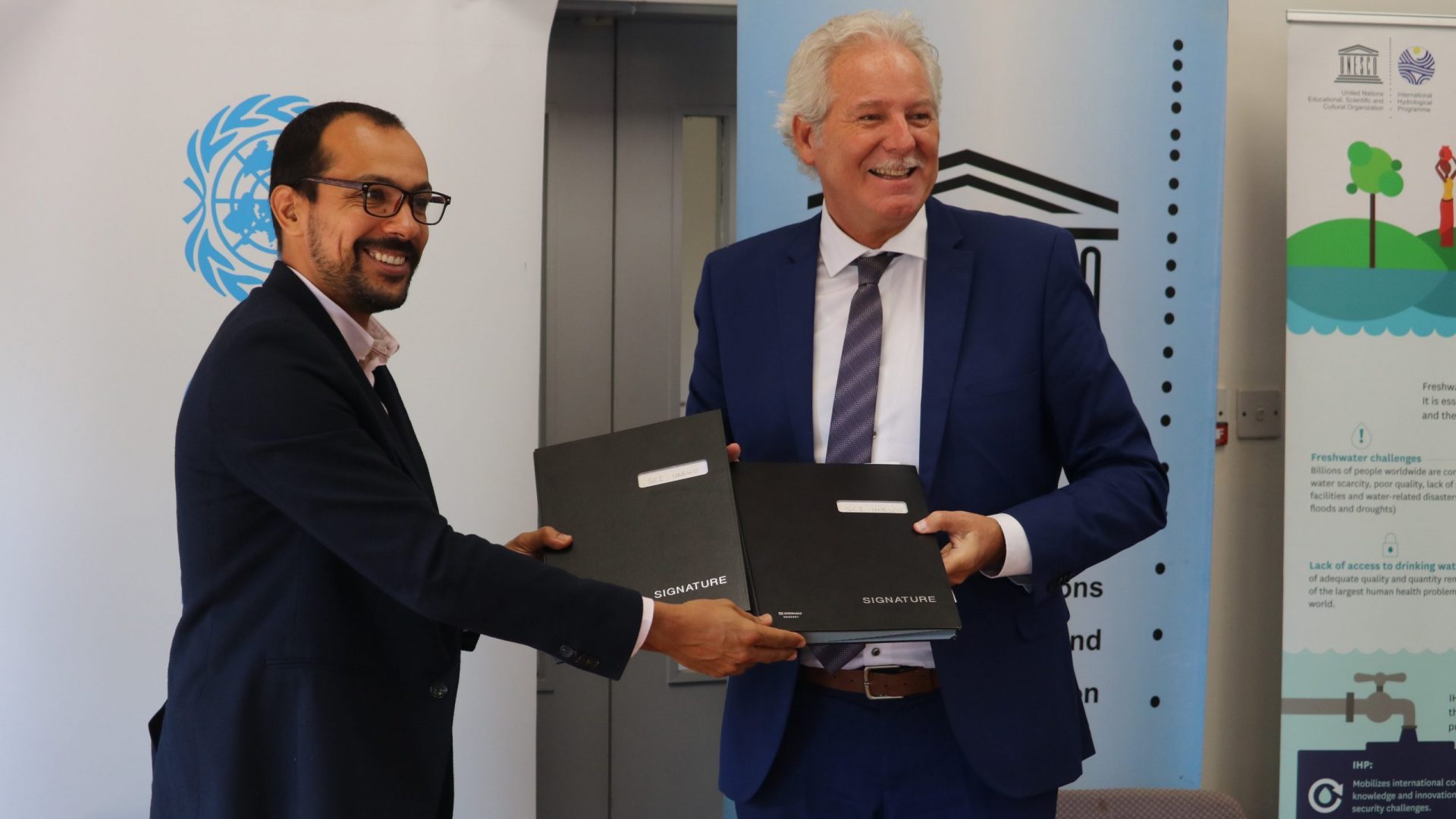UNOPS and the World Bank welcome UNESCO under the Zimbabwe Idai Recovery Project
The United Nations Office for Project Services (UNOPS) Zimbabwe and UNESCO signed an agreement on the implementation of the Comprehensive Resilience Building in the Chimanimani and Chipinge Districts programme aimed at reducing the vulnerability of the communities to natural disasters, such as floods, droughts, and landslides. The initiative also aims at enhancing water resource management as well as ecosystem services in response to the uncertainty of future climate change.
This development came amid Cyclone Idai second anniversary, which made landfall on 16 March 2019 and caused devastation that became a wake-up call for pertinent issues on climate change and disaster risk management in Zimbabwe.
Signing the agreement, the UNESCO Regional Director for Southern Africa, Prof. Hubert Gijzen, reiterated that the agreement is a significant milestone in the UN’s ongoing collaboration and will provide a stepping stone for joint initiatives in the future.
He added that the impacts of cyclones prove that there is a clear need in the Southern African Region to move towards a more proactive Disaster Risk Reduction (DRR). Therefore, a more focused effort is needed to provide more adequate flood monitoring and early warning capacities for Zimbabwe and to strengthen long-term resilience building to water-related hazards.
UNOPS Zimbabwe Country Manager Djibrilla Mazin said bringing UNESCO on board to the ZIRP is timely and strategic for resilience building. UNESCO will undertake the critical work of preserving natural resources towards sustainable water and ecosystem management, using a climate change adaptation framework.
“The partnership with UNESCO will fulfil this role for comprehensive disaster risk mapping and resilience building in the Chimanimani and Chipinge Districts. Taking lessons from Cyclone Idai, UNESCO will help build capacity for flood monitoring and early warning systems,” Mazin said.
The World Bank co-Task Team Leader for Zimbabwe Idai Recovery Project Tonderai Mukonoweshuro pointed out that the ZIRP model of “One Project, One Team” with UN agencies working as one unified and synergetic model has certainly borne results, adding that significant progress has been made since the inception of ZIRP in September 2019.
“By selecting specialist agencies to provide technical support through UN to UN agreements, ZIRP has provided greater efficiency through coordination.”
ZIRP is a unique partnership for the World Bank and the UN. It marks one of the first-ever integrated engagements, which now has eight UN agencies under one project umbrella.

